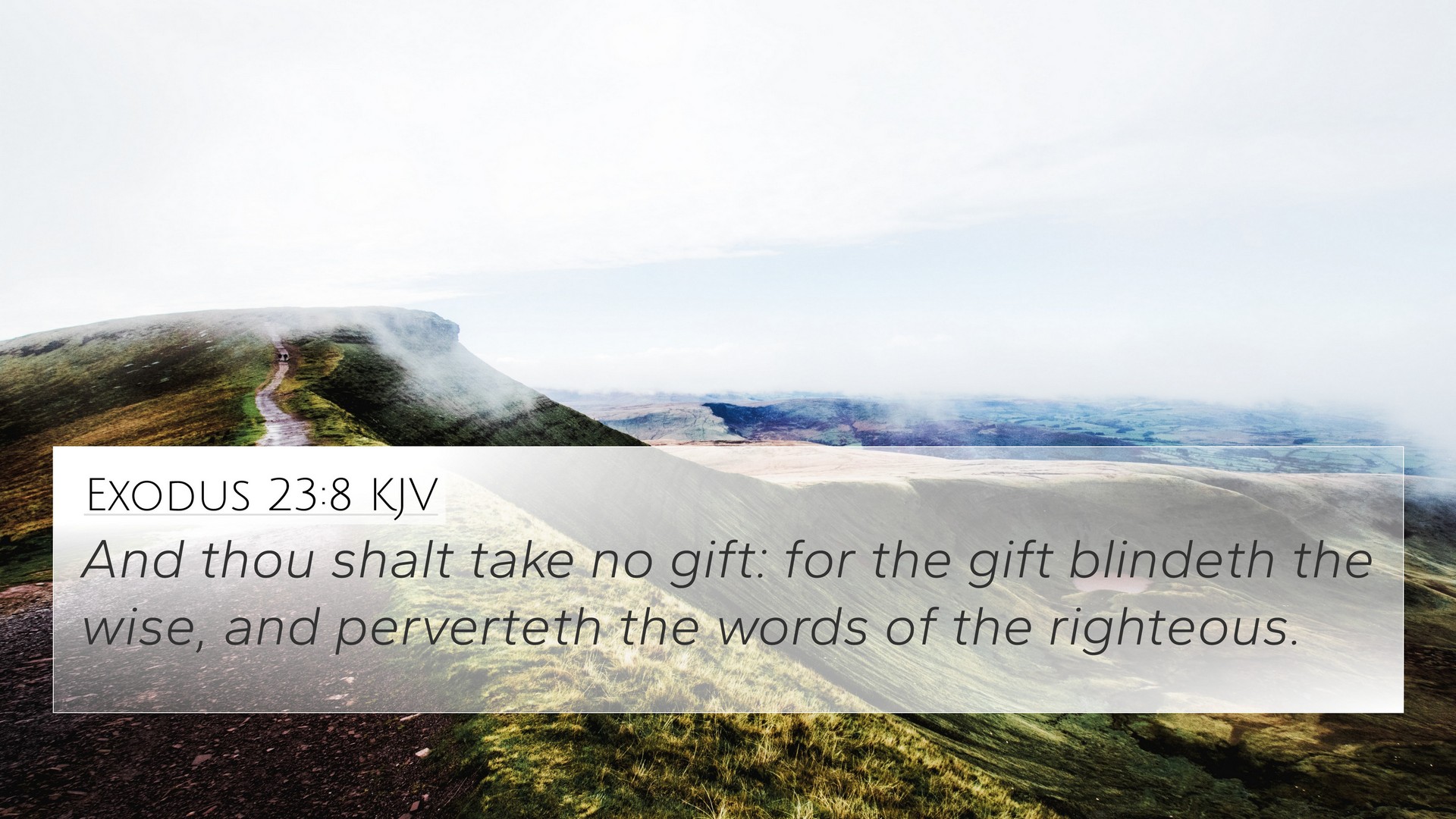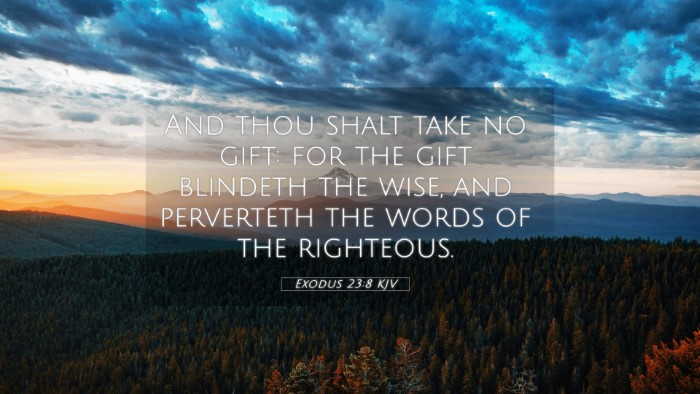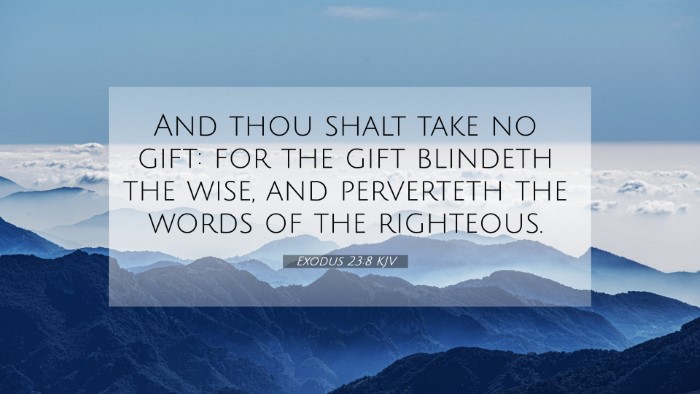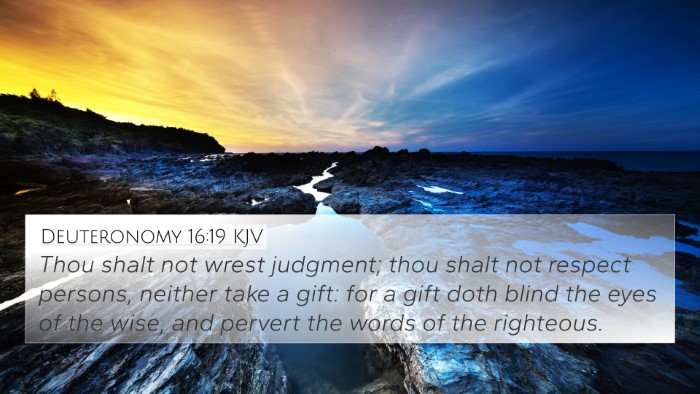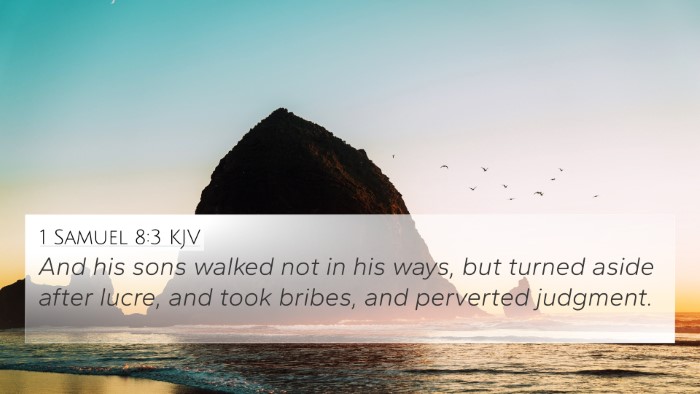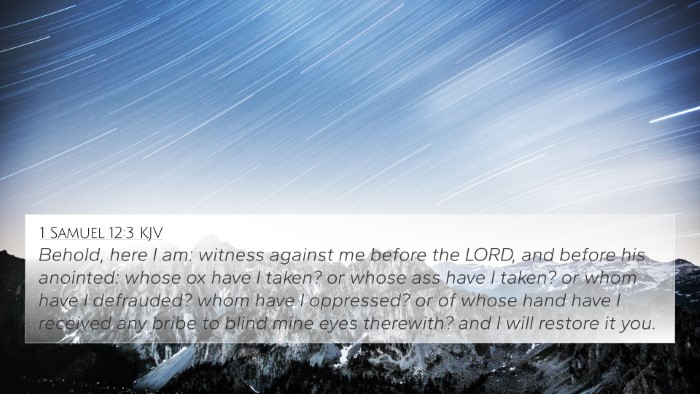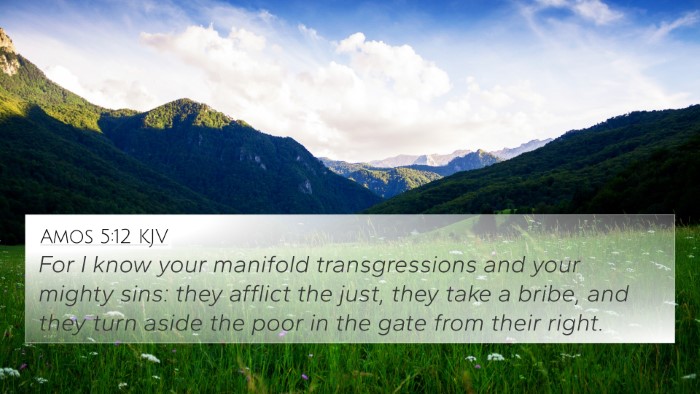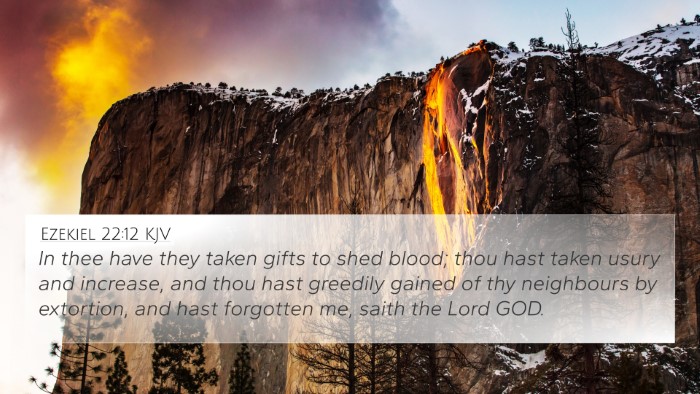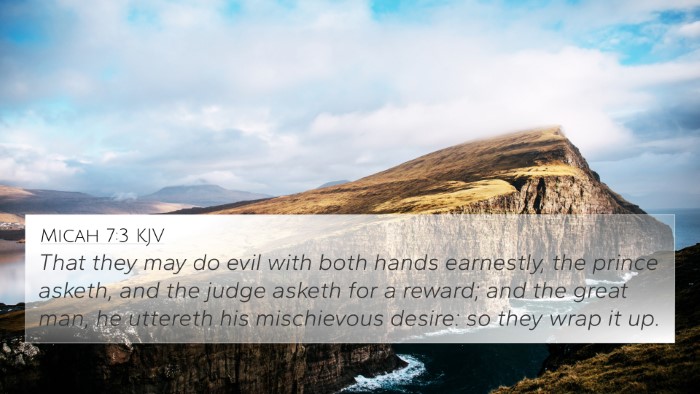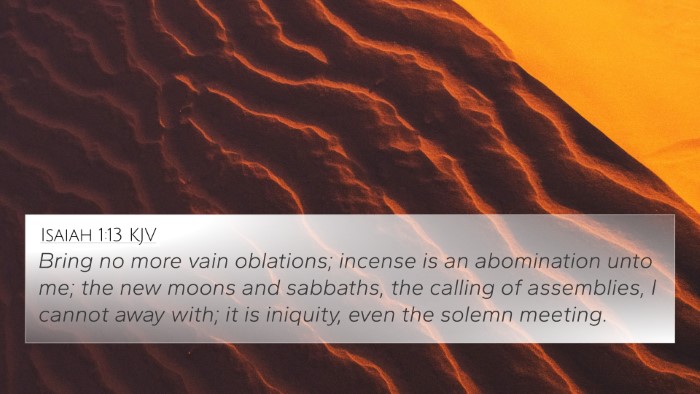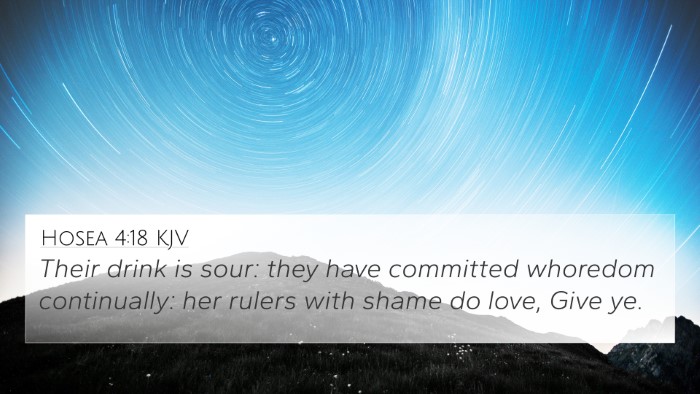Understanding Exodus 23:8
Bible Verse: Exodus 23:8 - "And thou shalt take no gift: for the gift blindeth the wise, and perverteth the words of the righteous."
Summary of Meaning
Exodus 23:8 serves as a caution against corruption and bias in judgment. The verse emphasizes the dangers of accepting bribes or gifts that can distort one's integrity and moral understanding. Public domain commentaries such as those by Matthew Henry, Albert Barnes, and Adam Clarke elaborate on this principle, highlighting its relevance in both ancient and modern contexts.
Key Insights from Commentaries
-
Matthew Henry discusses the nature of gifts and how they have the potential to blind the wise and compromise righteousness. He stresses that even those strong in their morality can fall victim to the enticing nature of gifts, suggesting a broader principle about the importance of integrity in all dealings.
-
Albert Barnes emphasizes the necessity of maintaining impartiality, especially for judges and leaders. He notes that accepting gifts can severely impair one’s judgment and effectiveness in serving the community. The integrity of leadership is paramount, as is the need for fairness in legal matters.
-
Adam Clarke provides historical context to the practice of judicial bribery, interpreting this commandment as an essential moral ordinance for society. He points out the implications for justice and social harmony when leaders allow personal gain to interfere with their responsibilities.
Practical Implications
This verse carries significant weight in contemporary discussions about ethics in governance, legal systems, and personal relationships. It calls for a constant vigilance to ensure that motives are pure and that integrity is upheld in every interaction.
Cross-References
This verse is interconnected with several other Biblical texts that speak to the themes of integrity, justice, and the dangers of corruption. Here are some important cross-references:
- Deuteronomy 16:19 - "Thou shalt not wrest judgment; thou shalt not respect persons, neither take a gift: for a gift doth blind the eyes of the wise, and pervert the words of the righteous."
- Proverbs 17:23 - "A wicked man taketh a gift out of the bosom to pervert the ways of judgment."
- Proverbs 29:4 - "The king by judgment establisheth the land: but he that receiveth gifts overthroweth it."
- 1 Timothy 6:10 - "For the love of money is the root of all evil: which while some coveted after, they have erred from the faith, and pierced themselves through with many sorrows."
- James 2:1 - "My brethren, have not the faith of our Lord Jesus Christ, the Lord of glory, with respect of persons."
- Matthew 5:37 - "But let your communication be, Yea, yea; Nay, nay: for whatsoever is more than these cometh of evil."
- Luke 12:15 - "And he said unto them, Take heed, and beware of covetousness: for a man's life consisteth not in the abundance of the things which he possesseth."
Connections with Other Scriptures
The plight against accepting bribes and showing partiality is a recurring theme throughout both the Old and New Testaments. Understanding Exodus 23:8 in light of these verses contributes to a broader narrative about ethical conduct, divine justice, and moral integrity.
Thematic Bible Verse Connections
When exploring themes related to Exodus 23:8, several distinct areas emerge:
- Integrity in Leadership: See 2 Samuel 23:3 for descriptions of just rulers.
- Justice and Fairness: Refer to Isaiah 1:17 for calls to defend the oppressed.
- God’s Commandments on Justice: Examine Leviticus 19:15 about not perverting justice.
Comparative Bible Verse Analysis
A detailed analysis of Exodus 23:8 alongside cross-references helps illuminate the broader biblical framework concerning ethics. This verse connects deeply with teachings about generosity, communal responsibility, and accountability among leaders.
Conclusion
In summary, Exodus 23:8 serves as an enduring reminder that the pursuit of righteousness and justice must remain untainted by personal gain. The insights from respected commentators provide depth to its interpretation, highlighting the verse’s relevance for individual conduct and societal ethics.
As we continue our study of the Scriptures, tools for Bible cross-referencing can greatly enhance our understanding of scriptural themes and connections. The various cross-references and thematic interrelations help create a comprehensive approach to gaining scriptural wisdom.
